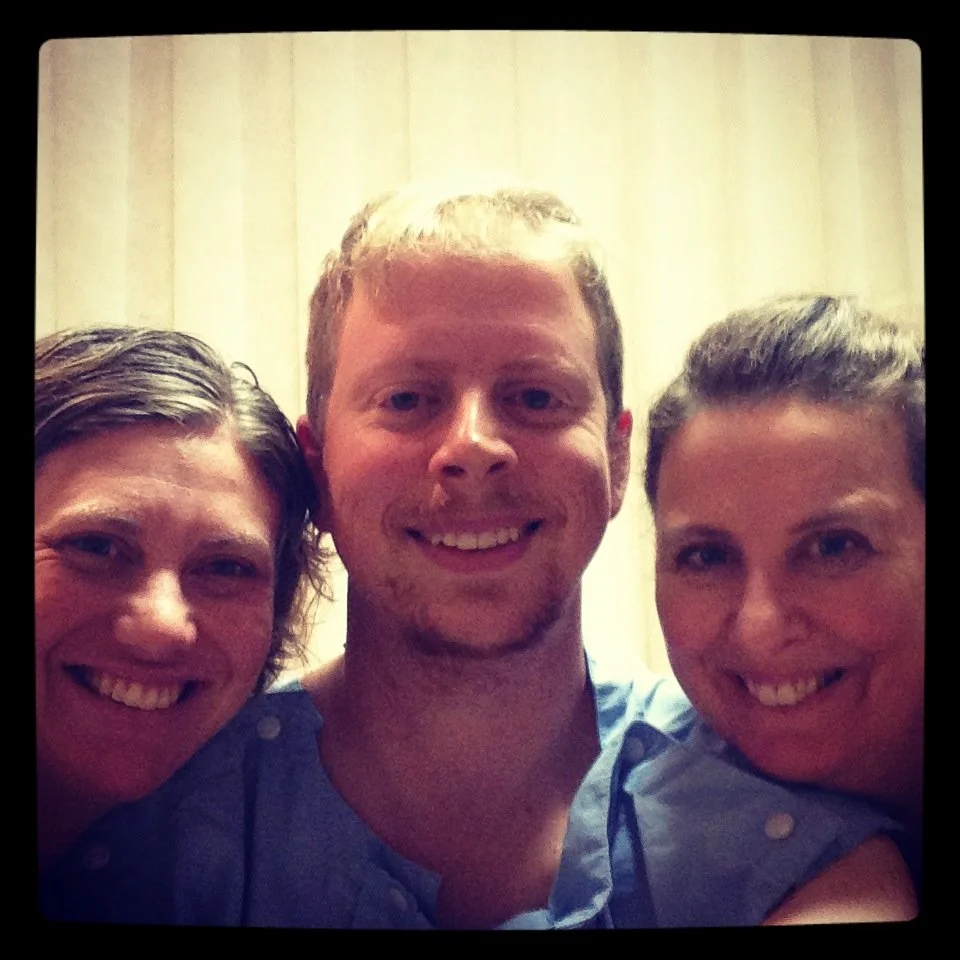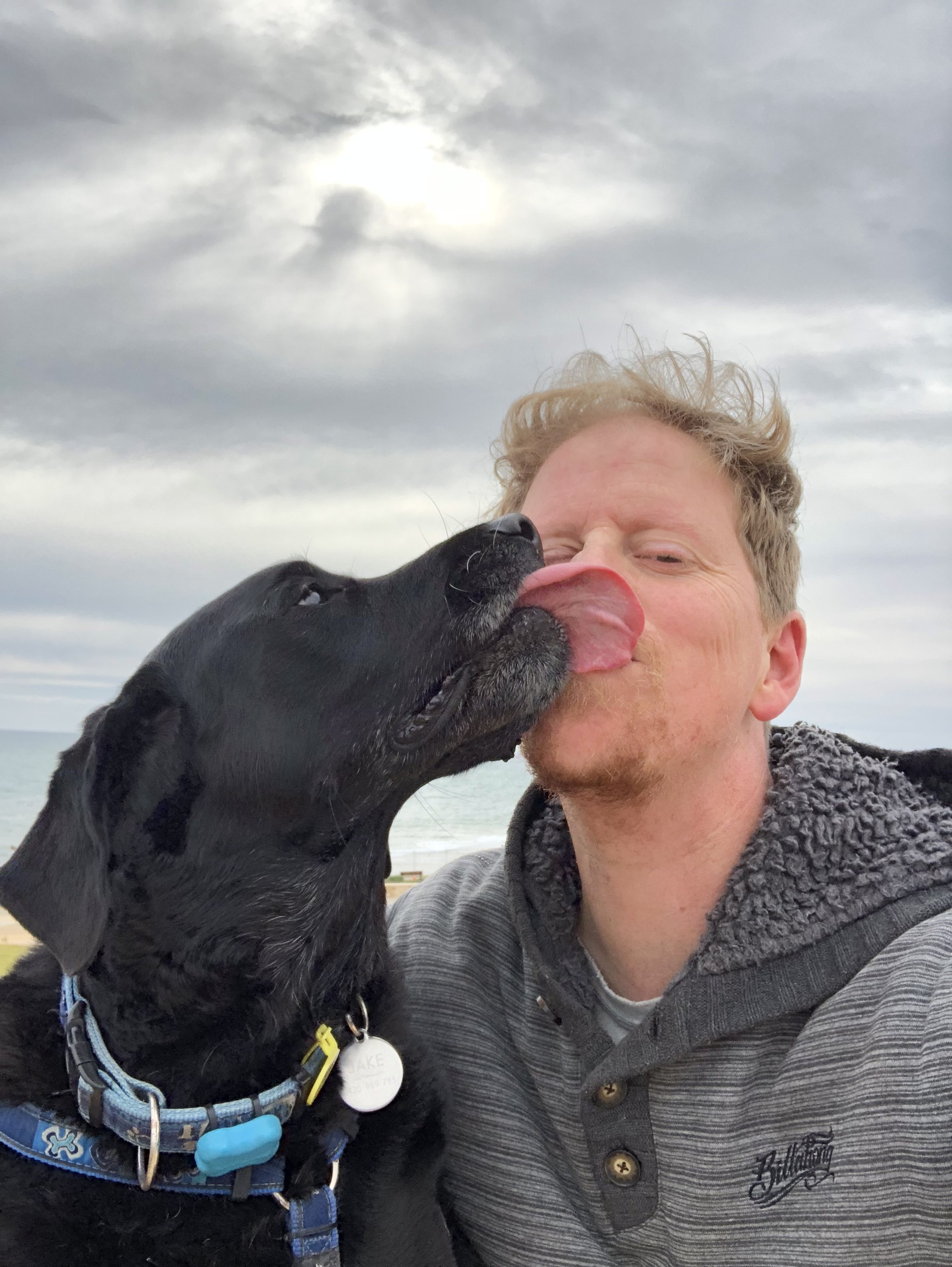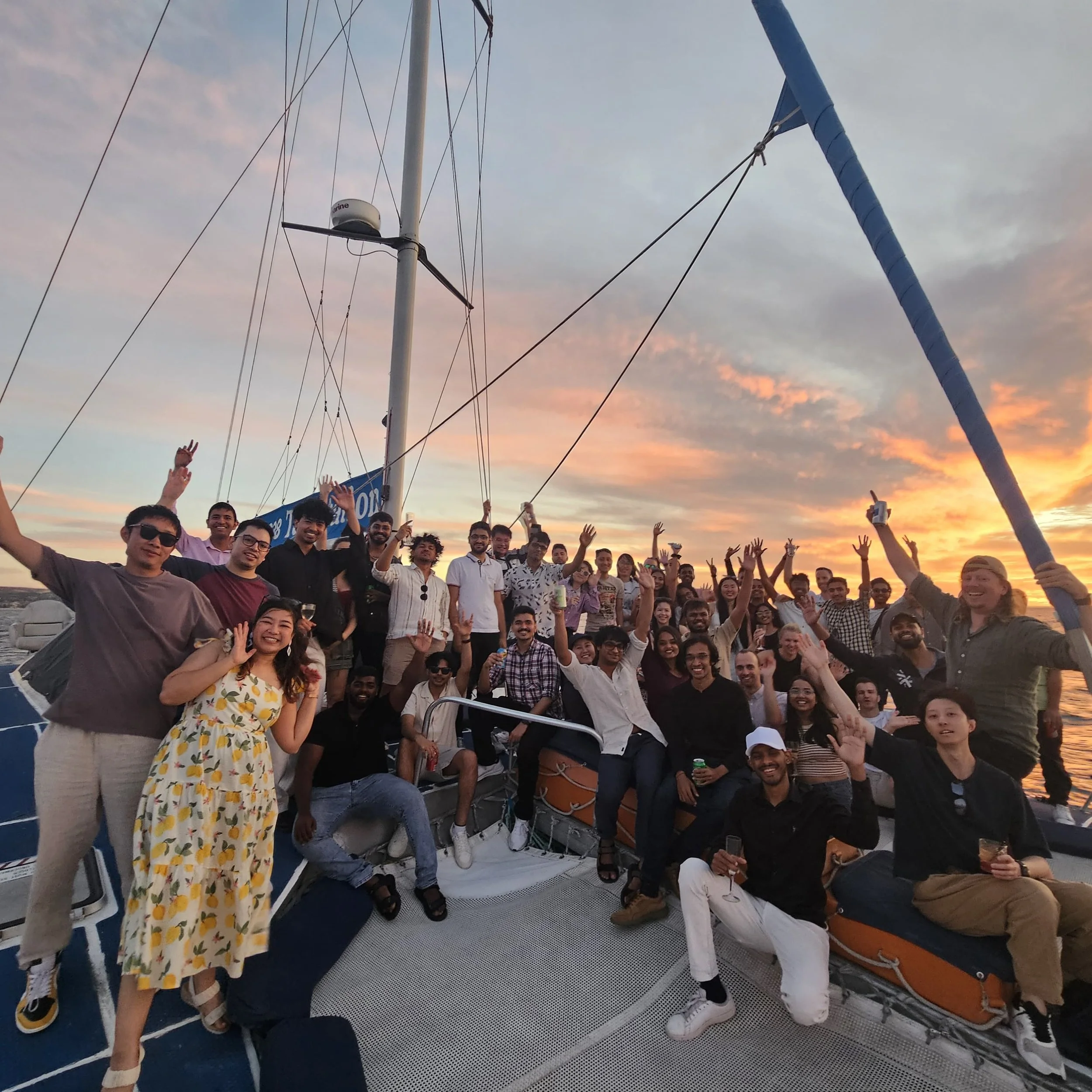After the Storm: Surviving Cancer, Living with Depression, Leading with Empathy
Grant Freeman shares his experience of life after prostate cancer — the physical changes, the depression that followed, and what it’s taught him about leadership and empathy.
I was told I’d be fine, but when I finally saw the specialist, I was the last one to go in. The words “You have cancer” hit hard.
Depression comes in waves. Some days the water’s calm — the sun hits my face, there’s an upbeat in my walk, and for a while I feel light. Other days it’s a massive swell — unmistakable and suffocating. I feel lonely, out of reach, stuck. I curl up on the couch with my hands over my face, waiting for it to pass.
Mine began after losing my prostate to cancer. I remember my diagnosis like it was yesterday. I was 34 — you know how young that is statistically. I was told I’d be fine, but when I finally saw the specialist, I was the last one to go in. The words “You have cancer” hit hard. Then came the forms for bone scans, MRIs… and the realisation that I didn’t know if I was going to live or die. That was the line in the sand — life has never been the same.
The surgery saved my life, but left its mark. A radical prostatectomy isn’t just about losing an organ — it changes you physically, mentally, and emotionally. For me, there’s been persistent pelvic nerve pain, sometimes so severe it’s completely debilitating. Sex now comes with pain, so I no longer want it. I identify as asexual because of the surgery. That shift alone has been a huge part of my journey, and talking about it matters — because too often, sexual health after cancer is hidden away, when it’s actually a central part of recovery and identity.
Jake, my best mate, saved me more times than I can count. His unconditional love and warmth never left my side.
The depression didn’t hit all at once. At first there was relief to be alive — mixed with survivor’s guilt. But I had little family support. Jake, my best mate, saved me more times than I can count. His unconditional love and warmth never left my side. Over time, the physical pain, the loss of sexual function, and the reality of what cancer had taken from me began to sink in. It felt like my future had been rewritten without my consent.
Being a student leader with depression adds another layer. I remember coming out as asexual on Instagram, only to be met with gossip and grief from some in the student cohort. It was a stark reminder of how far we still have to go for acceptance — not just for the LGBTIQ+ community, but for people whose identities are shaped by medical trauma. At my university, over a thousand students know me. I’m visible everywhere, and that visibility comes with a responsibility to choose my words and actions carefully.
Every day, students open up to me. I’ve heard hundreds of stories, and received thousands of messages from people in need. Many interactions are uplifting — I’m surrounded by students who inspire me, and I’ve seen real beauty in human connection. But the volume and intensity can be overwhelming. Leadership often means holding things together in public while quietly falling apart in private.
I’m surrounded by students who inspire me, and I’ve seen real beauty in human connection.
Living with depression has deepened my empathy, but it’s also taught me that empathy goes both ways. People who are hurting can hurt others — sometimes even taking vengeance, as I’ve experienced myself. We all have to own the ripple effects of our behaviour. Supporting someone means making space for honesty, accountability, and care — all at once.
So to students, staff, and anyone supporting someone with mental health challenges: please don’t just send them to counselling and consider the job done. Start by listening. Repeat back what they’ve said so they know you’ve heard them. Ask, “What do you think would help right now?” Services can be part of the answer — but they should never be the first and only step. I once walked a student to counselling in the middle of a crisis. Not because I had the answers, but because I was there. And sometimes, just being there is what matters most.
Communication is so important. Look after your wellbeing, but ensure you communicate. While caring for yourself, be mindful that you’re not harming someone else.
And for those reading this — don’t let others beat you down. If you’re struggling, you are just as capable, and in many ways even stronger, than those who haven’t faced these challenges. Don’t let anyone make you believe otherwise or gaslight you into thinking you’re not capable. You are worth it. Be proud of yourself.
Working through these challenges has also meant accessing disability support services, which have helped me navigate recovery and the ongoing impacts that will be part of my life. Counselling services have been another important part of my journey. If you’re struggling, these supports can make a real difference — you don’t have to face it alone.
Support services
Counselling Services University of Adelaide



